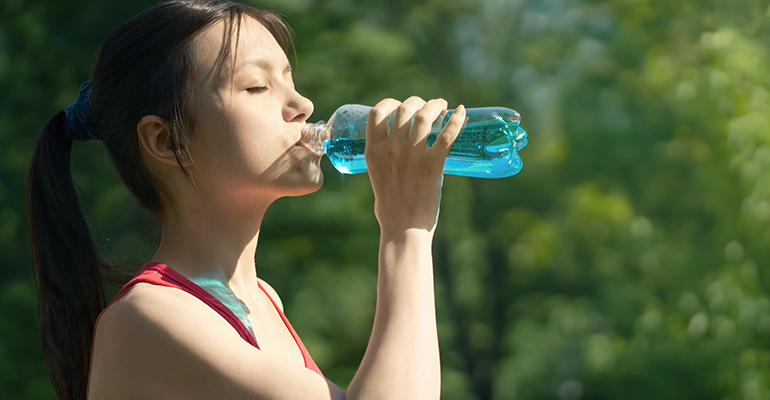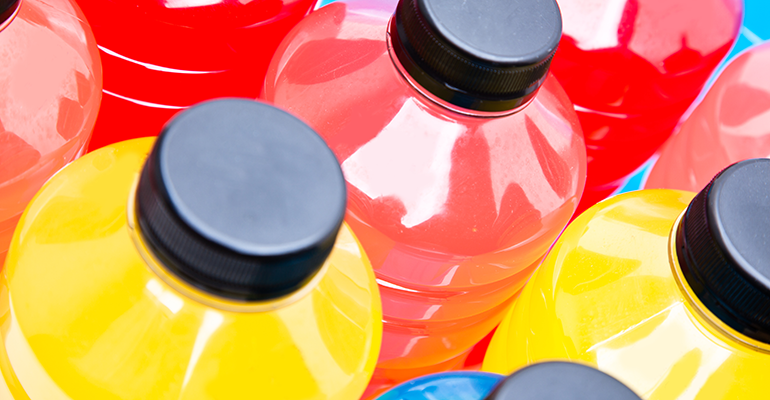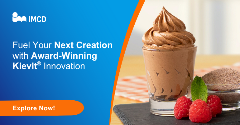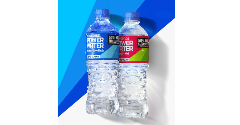News
‘The biggest comeback in industry history’: Sports nutrition market bounces back
22 Feb 2023
After lockdowns, gym closures, and a steep decline in brick-and-mortar shopping during the Covid-19 pandemic, the US sports nutrition market has bounced back, with Nutrition Business Journal calling it “the biggest comeback in nutrition industry history”.
Combined, sports nutrition and weight management saw a modest 4.3% growth rate in 2020, mostly attributed to COVID-19 restrictions on gyms and stores. But the categories bounced back in a big way in 2021 with 21.6% growth, according to a recent market report by Nutrition Business Journal (NBJ).
NBJ called this growth in sports nutrition “the biggest comeback in nutrition industry history.”

“Sports nutrition and weight management surged in 2021, buoyed by a return of retail, which especially benefited the hydration and energy drink market that is so dependent on mass market for sales,” NBJ said.
Sports nutrition gained across the board
The sports hydration and energy beverages subcategory had a major impact on overall sales for sports nutrition, and made the largest gains of any category in 2021. These beverages hit $36.26 billion in sales on 30.8% growth in 2021, which was a significant increase from the 8.3% growth in 2020.
On the other end of the spectrum, nutrition bars and gels had the slowest growth in 2021 at 5%, but it was still a significant improvement from 2020’s 8.1% decline. And RTD protein grew by 5.9% in 2021 after dropping by 2% in 2020.
“Sports nutrition bars and gels might have been the biggest sales nightmare for the nutrition industry in 2020, losing a half billion dollars as consumers spent less time on the go and thus had less reason to buy bars and gels. That nightmare is over now, largely,” NBJ said in the report.
Pre-pandemic sales won’t return until 2024
Natural and specialty retail also leveraged a comeback from a 7.7% drop in sales in 2020 to a 3.7% gain in 2021. But NBJ predicted that the channel won’t get back to its pre-pandemic sales until 2024.
On the e-commerce side, online sales of sports nutrition and weight management products saw massive growth, climbing 26.2% in 2021.
Sports hydration and energy sales online grew by 68.% in 2021, even though ecommerce still only represents 2.5% of total sales at $907 million. NBJ projects that that figure will rise to $1.56 billion by 2025.
NBJ said that bars and gels seem like ideal products for ecommerce, especially because they have a long shelf life and are easy and compact to ship in bulk. However, NBJ found that “the category is so thoroughly entrenched in brick and mortar.”
“Consumers spent 14 times more on bars and gels in mass market than they did online, and over eight times more in natural and specialty.”
How brands can capitalise on growth
In the report, NBJ encouraged legacy brands in sports nutrition to take risks in order to compete with newer, flashier entrants to the category.
“Despite adages about old dogs and new tricks, there is still room for legacy brands to latch onto trends and even stretch their brand identity. That younger brands are praised for being nimble doesn’t mean older brands can’t be nimble right back,” NBJ said.
“The nice thing about being a well-known name is that consumer loyalty might grease the skids for product launches outside the core brand identity.”
In sport beverages, NBJ pointed to the recent Gatorade Zero with Protein launch as an example of a legacy brand that has kept up with changing consumer demographics, preferences, and trends. Functional ingredients are a top priority for sport nutrition beverage customers, especially when it comes to protein.
 © iStock/GreenPimp
© iStock/GreenPimp
From shakes to hydration drinks to kids’ products, getting creative with protein in beverages is one of sports nutrition’s strongest trends today. Sports nutrition bars also push the same functionality with key features like protein, collagen, and fibre.
Brands also have a big opportunity to cater to Gen Z, as the younger generation is driving sports nutrition interest and marketing on social media platforms in unique ways.
“Tech-savvy Gen Z is changing the way wellness brands approach their marketing strategies. Even though they can be more cautious than previous generations with how they spend their money, Gen Z is still willing to invest in wellness brands that align with their personal values and give back to the community,” Lily Hartman said in the NBJ report.
“Gen Z is not a generation that can be manipulated into purchasing products through old ways of marketing. Instead, they want to see social media influencers and supplement brands present content and products that are simply one thing: authentic.”
Related news

Oat Barista: Innovation for game-changing beverages
20 Nov 2025
Oat Barista is a clean label, sustainable, and innovative drink base specifically designed to create the perfect foam in one single ingredient.
Read more
How younger consumers are redefining ingredient choices and rejecting brand loyalty
18 Nov 2025
Gen Z and millennial consumers’ preferences for transparency, functionality, and purpose are “redefining the very nature of consumption itself”, says SPINS.
Read more
Hybrid formats and flexible positioning to disrupt category norms in 2026
17 Nov 2025
Trend forecasters expect food and drink to move more fluidly across occasions, functions, and formats as consumers seek versatility, novelty, and convenience.
Read more
Danone highlights digestive health as potential ‘tipping point’ for food industry
13 Nov 2025
Danone is betting on a food industry “tipping point” that will bloat the market for healthy products, particularly those related to gut health.
Read more
New UPF standard hoped to offer consumers ‘coherence and clarity’
10 Nov 2025
Ingredients companies are being urged to enter “a new era of partnership and innovation” following the launch of the industry’s first non-UPF verification scheme.
Read more
Faravelli at Fi Europe: Showcasing FARA® functional solutions for food and nutra
28 Oct 2025
At Fi Europe 2025 in Paris (stand 72M39), Faravelli showcases FARA® Customized Functional Solutions and a wide ingredient portfolio for food and nutra – delivering quality, innovation, and expertise.
Read more
Agrigum Redefined FIBER
27 Oct 2025
Agrigum has transformed gum acacia into a natural, science-backed fibre that supports gut health, sustainability, and innovation across global food and nutrition applications.
Read more
Expanding boundaries in food & beverage innovation
23 Oct 2025
IMCD and FrieslandCampina Professional expand partnership to deliver Kievit® across EMEA, enabling brands to enhance quality and accelerate time-to-market for tomorrow’s food & beverage creations.
Read more
Amazon Grocery launch aims to balance quality with affordability
22 Oct 2025
Global e-commerce giant Amazon has introduced a new private-label food brand, combining existing Amazon Fresh and Happy Belly products with new everyday items.
Read more
Powerade enters hydration space with launch of Power Water
21 Oct 2025
Coca-Cola’s Powerade brand has launched a zero-sugar, electrolyte-enhanced functional water, marking the brand's entry into the hydration space.
Read more